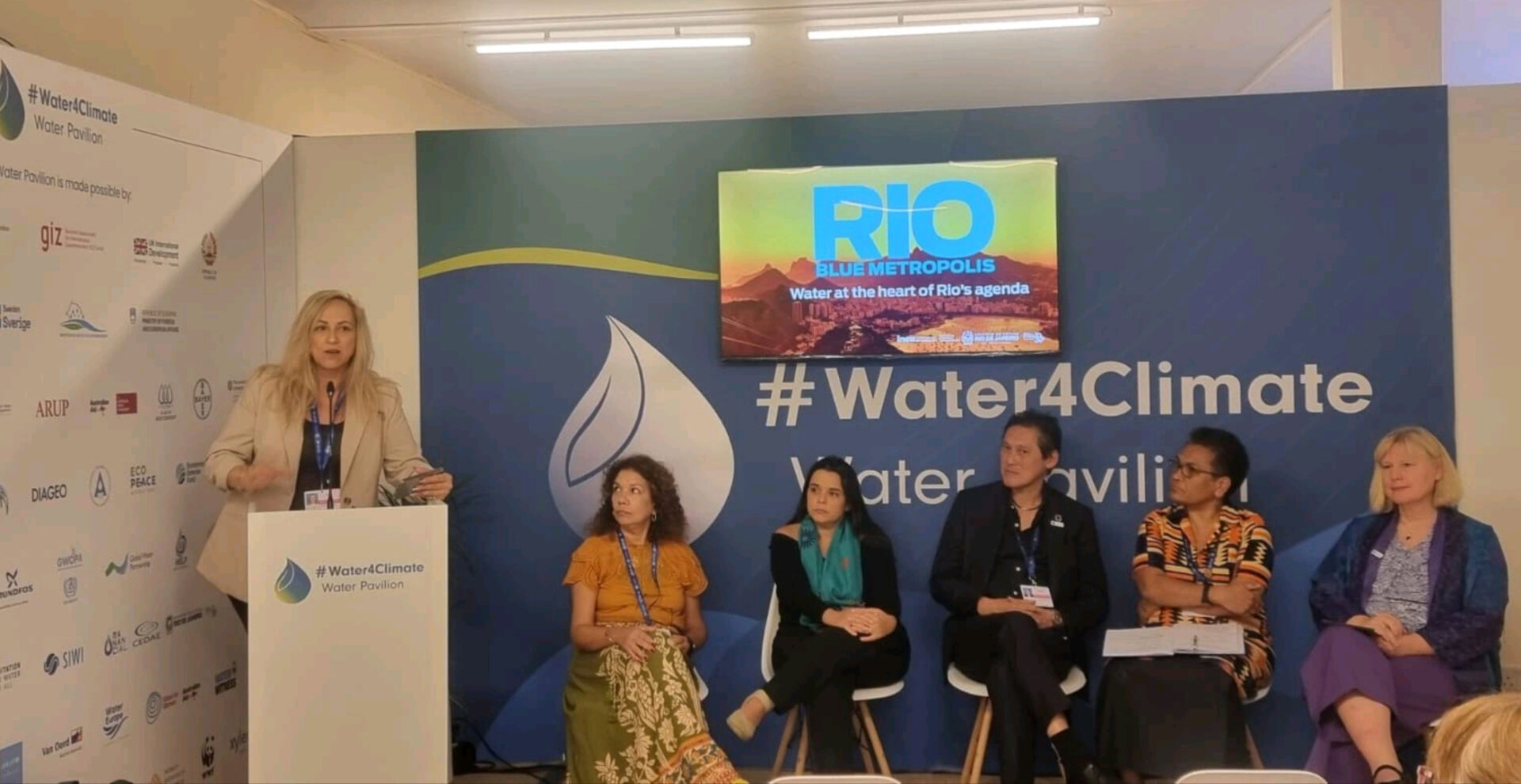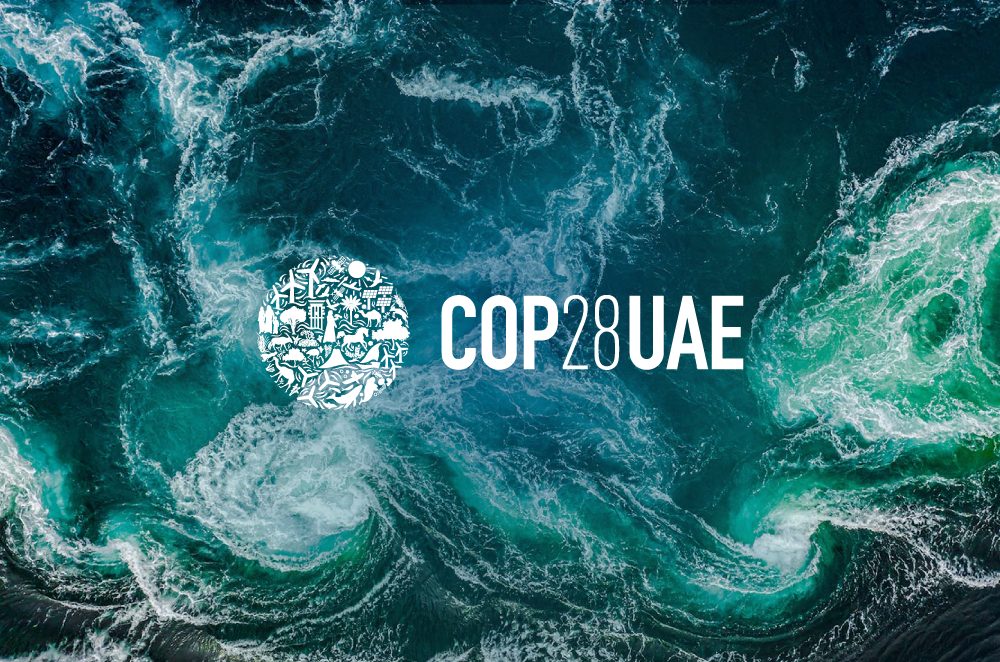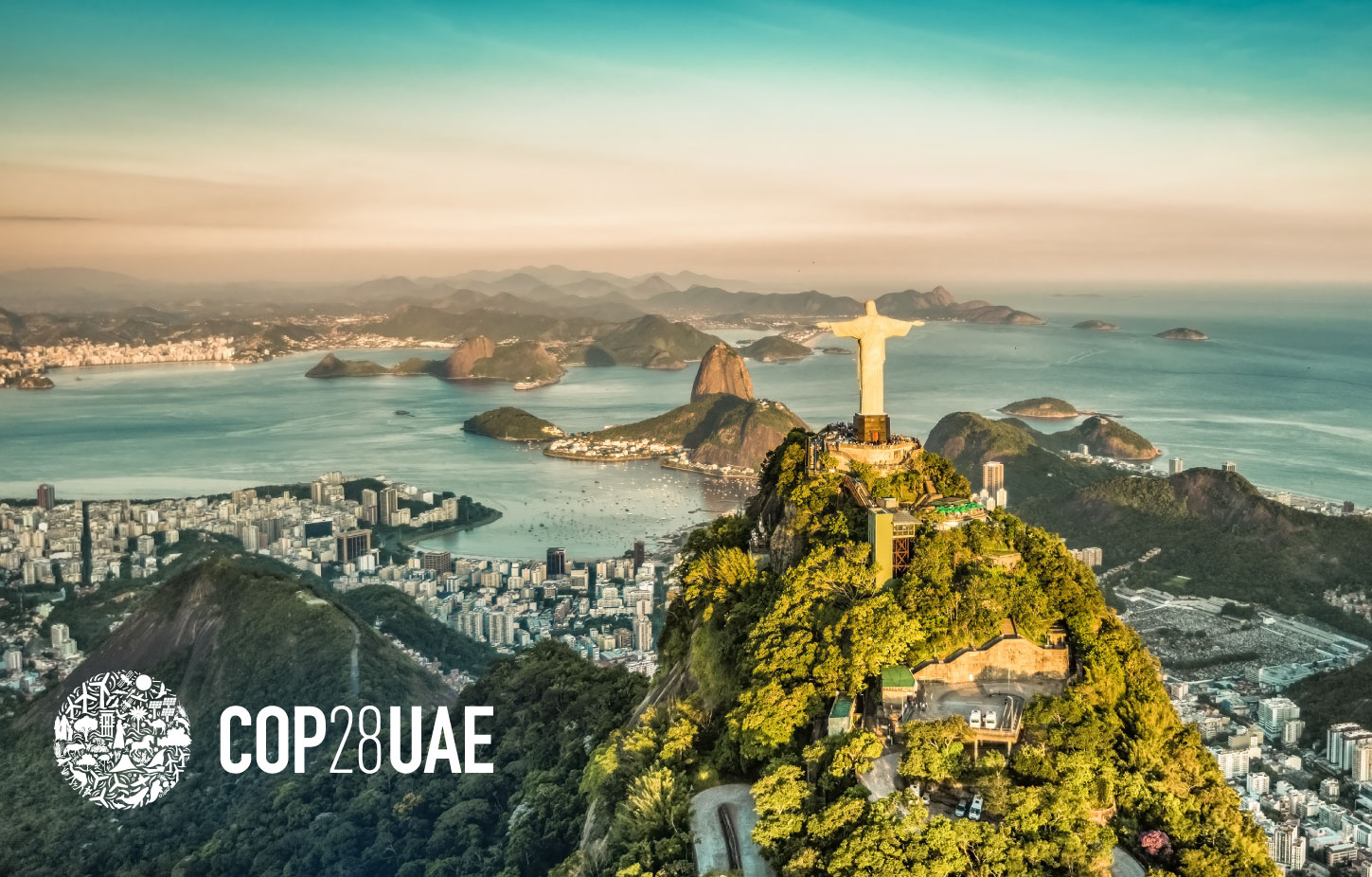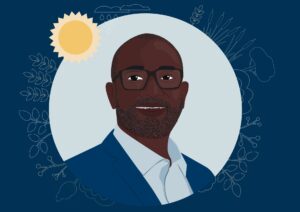Urban water resilience; practical examples of locally-led adaptation
“Adaptation strategies bring about transformative change that will make things happen differently.”
Dr Oriana Romano, Head of the Water Governance and Circular Economy in Cities unit at the OECD Centre for Entrepreneurship, reiterated the connection of the economy and water security with some stark facts. She stated that 800 million vulnerable people are exposed to sea level rise in 500 cities worldwide, with estimated reparation costs being 700 billion USD between now and 2050. Drought can potentially cost the global economy 6% GDP/yr by 2050, whereas floods have already incurred costs of more than 1 trillion USD since the 1980s.
A recent survey by the OECD, of cities and regions located next to freshwater bodies and coasts, showed that the blue economy is a key driver of urban and regional development, essential for employment and increasing a region’s GDP. Yet, climate change directly impacts blue economy activities in these regions, through sea level rise, droughts, and floods. The survey highlighted how blue economies must be developed with resilience at their core, and that they must be inclusive, sustainable, and circular.
In Fiji, where approximately 15% of the population live within one of 250 informal settlements, inclusivity is key to an approach being taken to develop water security. With residents having no land rights, nor the means to pay for basic services, sanitation is minimal at best and frequently non-existent. Though with increased sea-level rise and flooding events, the services that do exist are often deluged and the contents flood into the surrounding area. Gastrointestinal issues are widespread as residents live amongst fecal matter, which also affects children’s physical and cognitive development.
Professor Tony H F Wong and Ms Mere Naulumatua, from Revitalizing Informal Settlements and their Environments (RISE), explained how simple solutions such as pressurized sanitation tanks, developing wetlands, and installing footpaths can reduce contact between residents and raw sewage. Yet, the situation is complex as communities in the informal settlements can be distrustful of external help, whilst local governments are resistant to making changes due to land-right issues. A pilot project by RISE has seen huge success, however, which has encouraged local governments to get involved and even make changes to planning laws for informal settlements, whilst a community action group has helped alleviate residents’ concerns.
Ms Layal Abi Esber, Climate Change Coordinator at the UN-Habitat Lebanon Office, continued the discussion of informal settlements, which have exploded in Lebanon in the recent years following various conflicts in the region, notably the war in Syria. Already a water-stressed nation with a vastly under resourced water and sanitation sector, the additional pressure on water resources is causing tensions in the country. In response, UN-Habitat launched a regional project in 2021 to increase the resilience of displaced persons and host communities in Jordan & Lebanon. The project is comprised of various arms, those being: climate change mainstreamed urban planning, including an urban observatory to collect climate-related data to aid climate- and water-sensitive development decisions in informal settlements; rainwater harvesting and wastewater reuse; and finally, permaculture growing practices to reduce pesticide and chemical fertilizer use.

As the world becomes increasingly urbanized, an estimated 1.2 billion people will live in an informal settlement by 2030, so developing approaches now, to ease the mechanisms by which they can managed and provided for, is of paramount importance.
Ruth Mathews, coordinator of the Action Platform for Source to Sea Management, highlighted how a system-wide, holistic approach can really bolster the effects of locally-led adaptation by creating the enabling conditions for them to be successful.
By considering freshwater, coastal regions, and the ocean as one continuum we can better appreciate how localized adaptations in one area can have impacts both downstream and upstream of that action. It’s also important to consider how local adaptation actions fit in with regional, national, and global adaptation plans, so that any tradeoffs can be addressed – and co-benefits maximized.
A key part of the source-to-sea approach is identifying and involving ALL stakeholders in developing an action plan. Inclusivity is key to this, by ensuring affected vulnerable parties are also part of the discussion, who often bring fresh perspectives and field-based solutions to the table. Whilst identifying roles and responsibilities of each stakeholder, there is a strong focus on the interconnectivity of their actions, and what each can do to better facilitate the actions of others.
Benefits of implementing the source-to-sea approach within locally-led adaptation plans include identifying impacts or problems that lie outside of the jurisdiction or awareness of a particular stakeholder. Also, the effects of the local adaptation action can be felt across a wider area of the source-to-sea system. There could also be financial savings, if actions are implemented at regional scales, as opposed to multiple times at local scales. Furthermore, if all stakeholders are involved in developing plans, there is a sense of ownership and people are more likely to adhere to changes.
Watch the session – Local Adaptation: water policies and good practices in urban areas
(You need to enable cookies to see the vide below. Or watch it directly on Youtube)
Follow SIWI to COP28
COP28 takes place in Dubai, UAE (30 November - 12 December). Join SIWI in a range of events, onsite and online, as we highlight water’s role in effectively addressing climate change. We are also the leading organizer of the Water for Climate Pavilion, where much of the water-related events will take place.
More about SIWI at COP28









